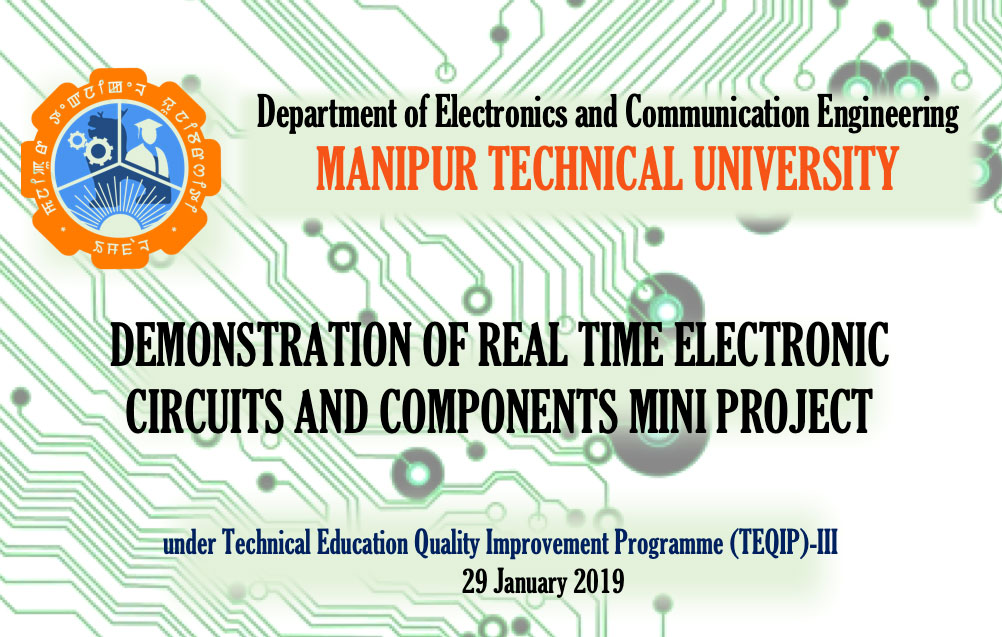A one-day event for “Demonstration of Real-Time Electronic Circuits and Components Mini Project” was organized by Department of Electronics and Communication Engineering, Manipur Technical University, Takyelpat under TEQIP III on 29th of January, 2019. A total number of 15 students comprising of 4th semester and 6th semester of ECE department, MTU participated and showcased their mini projects. These projects were very innovative and constructed using simple circuits and components which can be incorporated in our daily life at a very low cost. Students, PhD scholars, faculties and staffs of the University as well as NIT Manipur attended the programme.
Overview
Real-Time systems are becoming pervasive. In a Real-Time System, the correctness of the system behaviour depends not only on the logical results of the computations but also on the physical instant at which these results are produced. Real-Time systems are classified from a number of viewpoints i.e. on factors outside the computer system and factors inside the computer system. Special emphasis is placed on hard and soft real-time systems. A missed deadline in hard real-time systems is catastrophic and in soft real-time systems it can lead to a significant loss. Hence predictability of the system behaviour is the most important concern in these systems. Predictability is often achieved by either static or dynamic scheduling of real-time tasks to meet their deadlines. Static scheduling makes scheduling decisions at compile time and is off-line. Dynamic scheduling is online and uses a schedulable test to determine whether a set of tasks can meet
their deadlines.
Aim and Objective
The main aim and objective of this demonstration programme are to encourage and to showcase the innovations by the students. Another main aim is to provide a common platform to promote and share the information and knowledge among the participants and the attendees.
Coordinator
Yengkhom Chandrika Devi
Assistant Professor,
Dept. of ECE, MTU
Outcome
The programme has educated the participants as well as the attendees and served its main aim and objectives. This type of demonstration programme must be conducted frequently because it helps the young minds to go beyond their limits and challenge themselves to move on further and to be more creative and innovative.
Gallery






Last Updated on April 4, 2024 by Web Admin


